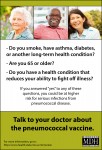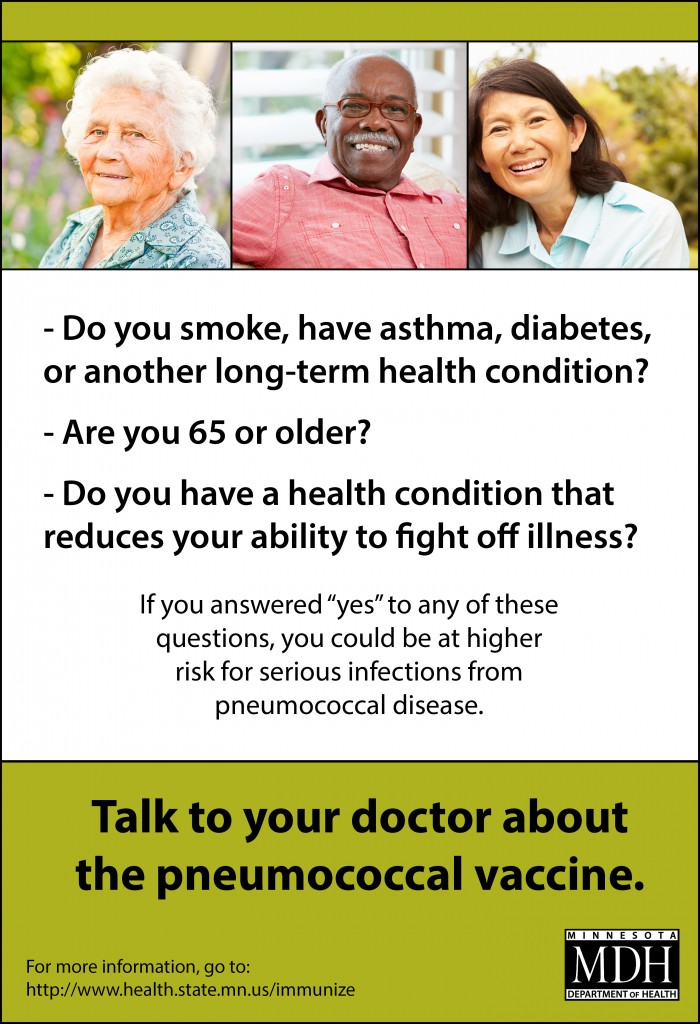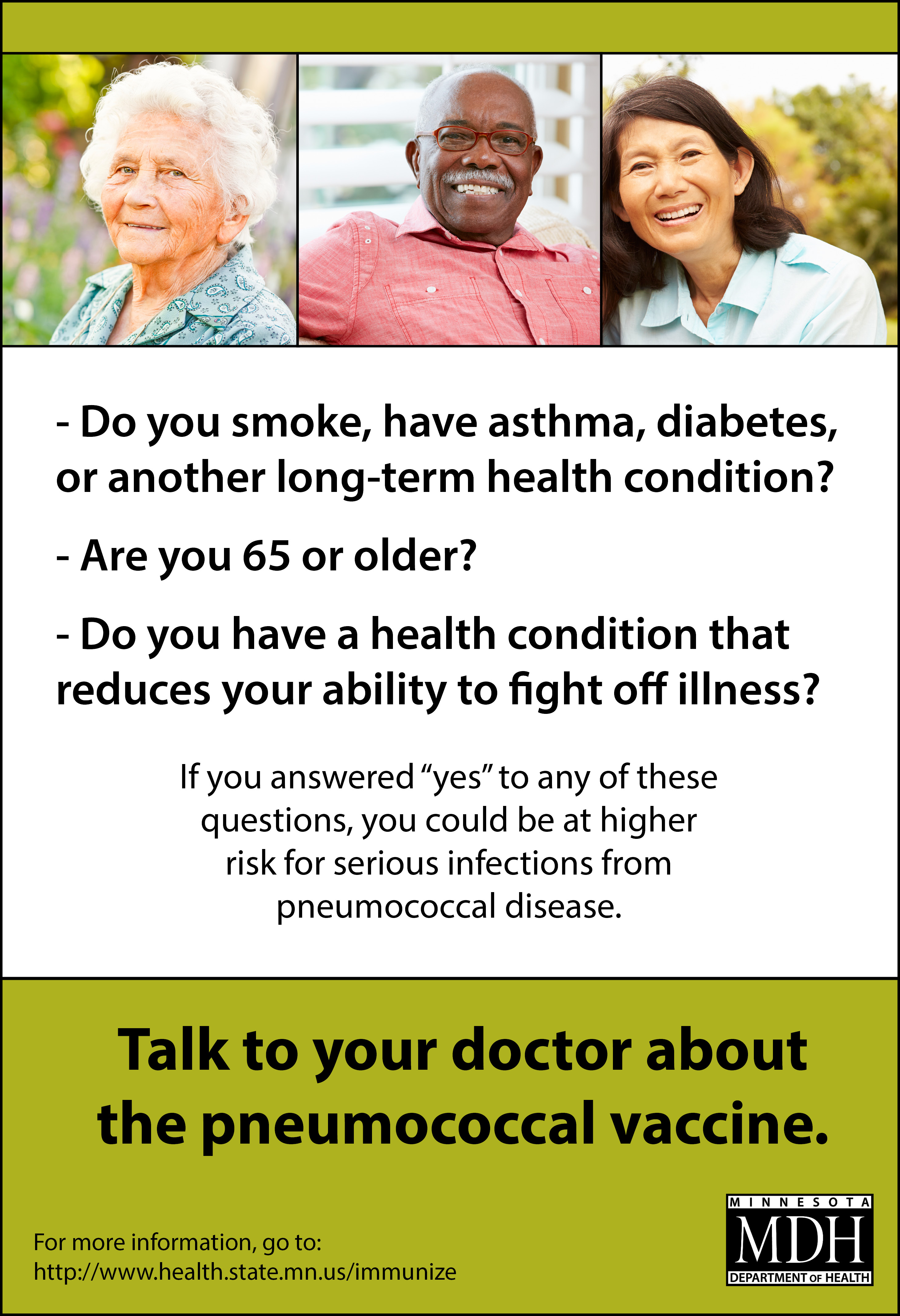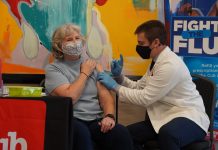
 Last winter Samuel thought he had caught a bad cold, but after two weeks of being sick, his health took a sudden turn for the worse. Samuel, only 35 years old, started having chest pain and trouble breathing. In a panic, his wife rushed him to the hospital while his children stayed with a neighbor. At the hospital they learned that Samuel had pneumonia, and he needed to stay in the hospital to get well.
Last winter Samuel thought he had caught a bad cold, but after two weeks of being sick, his health took a sudden turn for the worse. Samuel, only 35 years old, started having chest pain and trouble breathing. In a panic, his wife rushed him to the hospital while his children stayed with a neighbor. At the hospital they learned that Samuel had pneumonia, and he needed to stay in the hospital to get well.
Over the next week, Samuel tried many medicines to kill the germs that made him sick. After he recovered, Samuel learned that his illness was caused by pneumococcal disease and that it could have been prevented with a vaccine. As a smoker, Samuel did not know that he was at a higher risk of serious infections from pneumococcal disease. After this close call and being away from his family and work for over a week, he got the pneumococcal vaccine and now tells everyone that they should be vaccinated too.
If you smoke, have asthma, diabetes, or another long-term health problem, the pneumococcal vaccine can help protect you from serious infections like pneumonia, meningitis (infection of the tissues surrounding the brain and spinal cord), and blood infections. Getting vaccinated can also help prevent less serious infections like sinus infections and ear infections. Vaccination helps stop these infections before they start, and helps ensure that you do not pass them to your family and friends.
Pneumococcal disease is spread by coming in contact with the bacteria and then getting it in your mouth or nose. Sometimes a person infected with pneumococcal bacteria can be sick and you can avoid them, but often people are “carriers.” Being a carrier means that the bacteria live in the nose or throat of a person, but that person does not become sick. You cannot tell who could be carrying the bacteria, so vaccination is the best way to protect yourself.
Even if you feel healthy, conditions like asthma and diabetes place extra stress on your immune system making it harder to recover if you become infected with pneumococcal bacteria. People with asthma, diabetes, other breathing, heart, or kidney conditions, and people who smoke cigarettes should ask their doctor about what vaccinations can help them stay healthy.
People who have illnesses that reduce their ability to fight infections need to get two different pneumococcal vaccines to protect them. This includes people who have cancer, HIV, had surgery to remove their spleen, and cochlear implants (implants into the inner ear). People over 65 years of age should also get two different vaccines to protect them against pneumococcal disease. People in this age group can have problems recovering from a pneumococcal infection.
Ask your doctor or nurse if you have gotten the vaccines that you need. This includes flu vaccine, because being sick with the flu makes you more likely to get pneumococcal disease. Make sure you are up-to-date on your influenza and pneumococcal vaccines! For more information, go to: www.health.state.mn.us/divs/idepc/diseases/pneumococcal/index.html.











